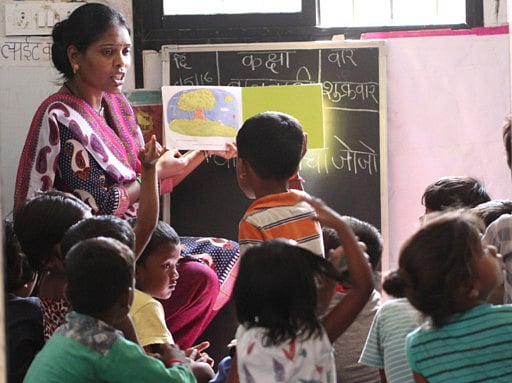Pakistan: Report highlights challenges of making modern education accessible to urban slums
Low standards of education coupled with civic & financial problems key learning hurdles

ISLAMABAD
One of the key challenges of modern education system is to make education more inclusive and equity oriented making it accessible to all segments of.society.
This was revealed in the findings of a survey conducted in Katchi Abadis (KAS) or urban slums of the 4 districts: Karachi West, Korangi, Malir and Lahore earlier in May this year.
A non-profit group working in education sector, Idara-e-Taleem-o-Aagahi (ITA) supported by the Foreign Commonwealth and Development Office (FCDO) undertook the project, first pilot,
and shared the findings in a virtual meeting with all the stakeholders.
The survey included a total of 114 KAS, reaching out to 2, 275 households, 2,285 Mothers and 6,411 children (Age 3-16).
The learning tools are mapped mainly to lower primary or grade-2 level national and provincial competencies.
While sharing the findings of the report, it was told during the meeting that the existing urban schools are functioning on rural frameworks.
While welcoming the report, Special Secretary, School Education Department, Punjab Dr Suhail Shahzad viewed that the mapping of urban slums in development framework is not representative, especially considering the population density and one needs to devise a structure for KAS so that that the government could establish schools according to the proportion of population there.
UNDP’s Resident Representative Knut Ostby said Pakistan was a water stressed country with rapid urbanisation and governance challenges.
“Covid-19 has further highlighted the challenges facing the informal urban colonies, particularly impacting the learning of children. It’s a timely effort to gauge the learning quality of children living in urban slums.
UNDP Pakistan recognises the complex systems and actively works with the government to achieve SDGs.
This report will be of great help to the government of Pakistan and development partners to work on urban resilience and development.
‘Painfully low level of learning’
Education Team Lead, Foreign Commonwealth and Development Office (FCDO) Pakistan, Kim Bradford Smith said the report showed that children in KAS are being left behind in their learn-ing — all school systems have painfully low learning levels.
What school you go to impacts your potential learning, with Madrassah students having extreme-ly low learning levels, she said.
The quality of learning in all school systems needs urgent attention, public resources need to be prioritised for the underserved, and teaching in mother tongue needs to be addressed.
‘Tip of an iceberg’
Member Education, P & D Department, Punjab, Khalid Sultan said what this report shows is just a tip of an iceberg, but we shall reinforce the recommendations mentioned in the report and include them in policymaking.
Sindh’s representative Jalbani also extended his support to the report, promising to use the data collected in the report for action.
The quality of learning in all school systems needs urgent attention, public resources need to be prioritised for the underserved, and teaching in mother tongue needs to be addressed.
Sign up for the Daily Briefing
Get the latest news and updates straight to your inbox
Network Links
GN StoreDownload our app
© Al Nisr Publishing LLC 2025. All rights reserved.